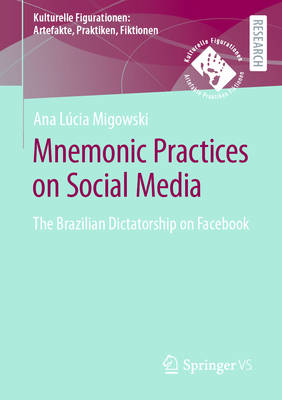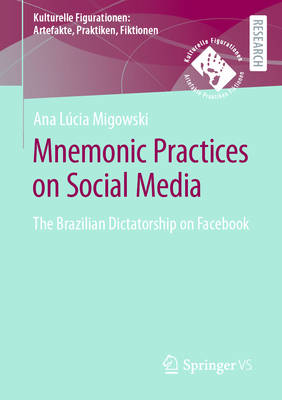
- Retrait gratuit dans votre magasin Club
- 7.000.000 titres dans notre catalogue
- Payer en toute sécurité
- Toujours un magasin près de chez vous
- Retrait gratuit dans votre magasin Club
- 7.000.0000 titres dans notre catalogue
- Payer en toute sécurité
- Toujours un magasin près de chez vous
Mnemonic Practices on Social Media
The Brazilian Dictatorship on Facebook
Ana Lúcia Migowski Da SilvaDescription
This book reflects on discourses about the Brazilian dictatorship (1964-1985) on social media. It examines entanglements between technological and mnemonic practices regarding this historical period. Following Olick and Robbins' (1998) Historical Sociology of Mnemonic Practices, the book analyses more than what social actors say about the past. It explores the externalisation of knowledge about the past based on interactions identified on Facebook. Through this platform, it was possible to map and collect posts, comments, and reactions related to the historical period. This sample reveals perceptions and attitudes of social media users toward the past. The book also discusses socio-technical matters grounding mnemonic practices observed on Facebook. The concept of mnemonic affordance served as a conceptual tool for understanding situational elements involved in what users perceive that they can do on Facebook while articulating meanings about the past. The close analysis of two affordances indicates specificities in the performance of mnemonic practices on Facebook. These issues shed light on struggles for legitimacy regarding memories of the dictatorship and their impact on traditional regimes of knowledge and current public affairs in Brazil.
Spécifications
Parties prenantes
- Auteur(s) :
- Editeur:
Contenu
- Nombre de pages :
- 327
- Langue:
- Anglais
- Collection :
Caractéristiques
- EAN:
- 9783658412753
- Date de parution :
- 01-07-23
- Format:
- Livre broché
- Format numérique:
- Trade paperback (VS)
- Dimensions :
- 148 mm x 210 mm
- Poids :
- 412 g

Les avis
Nous publions uniquement les avis qui respectent les conditions requises. Consultez nos conditions pour les avis.






